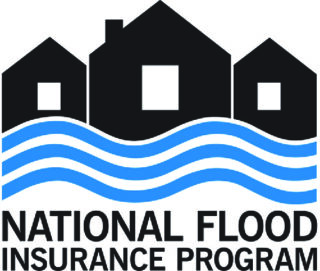Flood Insurance: Why Standard Home Insurance Falls Short and the Critical Need for Separate Flood Coverage
Introduction
Your home is not just a building; it’s where your cherished memories are made, and your most valuable assets are kept safe. Protecting it is essential, which is why most homeowners invest in home insurance. However, there’s a significant gap in coverage that many homeowners are unaware of—standard home insurance typically does not cover flood damage. In this comprehensive article, we’ll explore why standard home insurance falls short in this area and why purchasing separate flood coverage is critical to safeguard your home and financial well-being.
Why Standard Home Insurance Doesn’t Cover Flood Damage
- Limited Scope of Standard Policies Standard home insurance policies are designed to cover specific perils, which typically include events such as fires, theft, vandalism, windstorms, and more. However, flood damage is conspicuously absent from this list. This limitation arises from the necessity for insurance companies to assess and manage risks effectively. Floods are considered high-risk events, and insurers are understandably cautious about offering coverage due to the unpredictability and potential for widespread damage associated with floods.
- The Role of the National Flood Insurance Program (NFIP) In the United States, many homeowners mistakenly assume that flood damage is automatically covered by the government. While there is indeed a federal initiative known as the National Flood Insurance Program (NFIP), it operates independently of standard homeowners insurance. The NFIP was created to provide flood insurance to property owners, but it functions as a separate entity, requiring homeowners to purchase coverage specifically for floods. Standard home insurance policies do not automatically include NFIP coverage.
- The Unique Nature of Flood Risk Floods can be catastrophic events, leading to extensive damage to homes, infrastructure, and communities. Because of the severity of flood risk, flood insurance necessitates a specialized approach to risk assessment and underwriting. Insurers take into account factors such as a property’s elevation, proximity to bodies of water, historical flood data, and flood zone designations to determine the premium for flood insurance. The distinctiveness of flood risk underscores the need for a separate policy to effectively address potential losses.
The Importance of Purchasing Separate Flood Insurance
- Safeguarding Your Investment For most homeowners, their property represents their most significant investment. The aftermath of flood damage can result in substantial financial losses. Repairing or replacing a flooded home can be an overwhelming financial burden if you lack the safety net of flood insurance. Purchasing separate flood insurance ensures that your investment is protected in the event of a flood.
- Customized Coverage Flood insurance policies offer flexibility and can be tailored to your specific needs and the level of risk in your area. You have the freedom to choose coverage limits, deductibles, and endorsements that align precisely with your circumstances. This customization allows you to create an insurance policy that matches the unique flood risks you face.
- Peace of Mind Living in an area susceptible to flooding can be stressful, especially during the rainy season or when hurricanes are afoot. Having a separate flood insurance policy in place provides peace of mind, knowing that you are financially protected from the devastating consequences of flooding. You can focus on your safety and that of your loved ones without the constant worry of potential financial ruin.
- Community Benefits Participating in the NFIP and purchasing flood insurance extends benefits to your community as well. It contributes to floodplain management and mitigation efforts, making your neighborhood more resilient to floods. Additionally, it bolsters the overall stability of the flood insurance program, ensuring that it remains available for those who need it in the future.
Conclusion
While standard home insurance offers valuable protection for homeowners, it falls short when it comes to flood damage. Understanding why standard policies exclude flood coverage is crucial, particularly for those residing in flood-prone regions. Purchasing separate flood insurance is not just a prudent choice; it’s a necessity for safeguarding your home and financial well-being in the face of potential flooding.
Don’t wait until disaster strikes to realize the importance of flood insurance. Take proactive steps to secure your financial future and enjoy the comfort of knowing that your home remains protected. Flood insurance is a powerful tool for safeguarding your life and belongings, ensuring that your home remains a place of security and solace.

